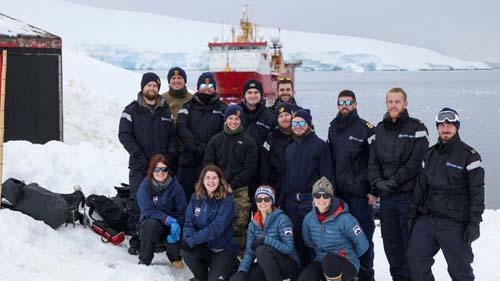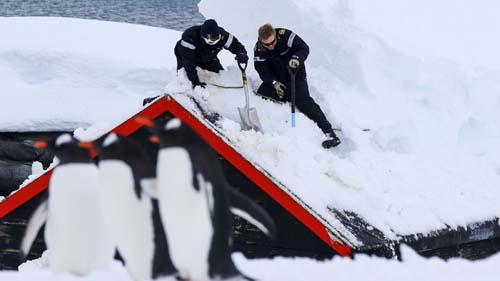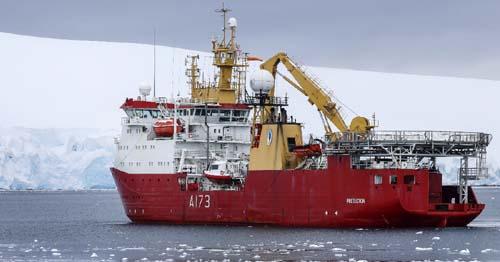
Royal Navy digs out world’s most remote post office from Antarctic snow
Jasmine Andersson
London: The Royal Navy has come to the aid of four UK women working at an isolated Antarctic scientific base after its buildings were buried in heavy snow.
Sailors and Royal Marines from HMS Protector spent two days digging out the Port Lockroy site.
The damaged roof of Bransfield Hut – home to a museum, gift shop and world’s most remote post office – was fixed.
The women beat 6,000 applicants to manage the base and share the island with a colony of Gentoo penguins.

Clare Ballantyne, Mairi Hilton, Natalie Corbett and Lucy Bruzzone accepted the task of reopening the site 9,000 miles from the UK in October after the coronavirus pandemic.
They were setting up, assisted by three other staff who are leaving shortly, ahead of the austral summer – which falls between November to February in the southern hemisphere – when heavy snowfall of between two and four metres (6-12ft) deep arrived.
The team from HMS Protector, which is based in Plymouth when in the UK, shifted several tonnes of snow and carried out temporary repairs.
Engineers say they used traditional naval ship damage control methods using wooden stakes and blocks to stabilise the structure.

The ice patrol ship pays regular visits to international bases like Port Lockroy on the frozen continent, delivering supplies, and supporting scientific research of the UK and other nations.
Warrant Officer First Class Lee “Rattler” Morgan, who was part of the rescue team, said he was “taken aback” by “the sheer amount of snow”, adding that the buildings “had all but disappeared”.
“It is good for the ship’s company to step ashore and help out. The sailors were all smiles and happy to get cracking on with such a worthwhile task.”
The staff can now resume their five-month stint at Port Lockroy, a former whaling station that has become a tourist attraction visited by around 20,000 people during the summer season.
During their time at the site, the four have given up running water, a flushing toilet, wi-fi, and can only speak to their loved ones for 10 minutes a week.
But when they were asked about giving up on creature comforts, the four said they could not resist the opportunity to work on the island.
Ms Corbett, in charge of running the gift shop at the site’s museum, was a newlywed when she embarked on the role. The 31-year-old from Hampshire dubbed the trip a “solo honeymoon”.
“Who wouldn’t want to spend five months working on an island filled with penguins in one of the most remote places on the planet?” she said.
Ms Ballantyne, from Lincolnshire, had just completed a masters in earth science at Oxford University.
The 23-year-old will deal with approximately 80,000 cards during her time on the job, which are mailed each year from the site to more than 100 countries.
Ms Hilton, from Bo’ness, near Falkirk in Scotland, is a conservation scientist in charge of monitoring the number of Gentoo penguins that live on the bay.
Ms Bruzzone, from London, who previously spent three months in Svalbard as a chief scientist on an Arctic expedition, is working as the base leader, managing the team and coordinating all ship visits to the island.
